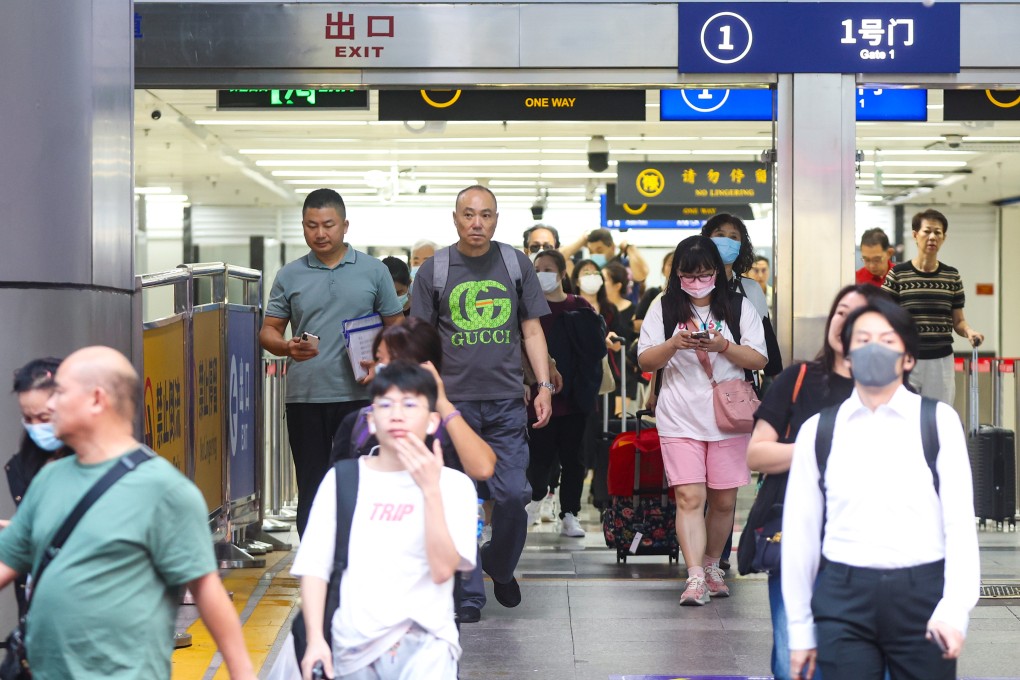Travellers crossing Hong Kong-mainland Chinese border enjoy smoother journeys after health declaration rule axed
- Hongkongers heading north say crossing is more convenient after mainland authorities scrap mandatory health declaration introduced during Covid-19 pandemic
- ‘If there were a lot of people crossing and you still needed to deal with the black code, the whole process would be delayed,’ one traveller says

Travellers crossing the Hong Kong-mainland Chinese border enjoyed shorter journeys after authorities in the north lifted a mandatory health declaration on Wednesday, the final pandemic curb to be axed.
Business groups in the city welcomed the move, which they said would help their members cross the border, with the Hong Kong General Chamber of Commerce CEO Patrick Yeung Wai-tim praising it as a positive step for improving connectivity.
“This, together with the recent move to issue multiple-entry visas to foreigners working in Hong Kong to visit the mainland, makes it quicker and easier to travel within the one-hour living circle,” he said, referring to a plan to make cities in the Greater Bay Area accessible within an hour-long commute.
Tourists and commuters passing through the Lo Wu checkpoint in the morning expressed relief over no longer having to complete the form. Some said the change had caught them off guard.
A Post reporter observed hundreds of travellers at Lo Wu MTR station heading for the mainland at around 8.30am, with passengers using nearby immigration counters after arriving.
Mainland customs authorities introduced the cross-border requirement in early 2020 in response to the pandemic, with the policy applying to incoming and outgoing travellers.
They were issued a QR code, commonly known as a “black code”, which was scanned at the border.